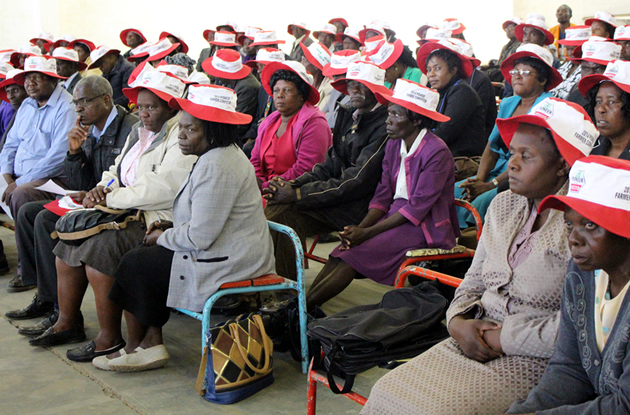Zim committed to reforms – IMF

 Business Editor
Business Editor
THE International Monetary Fund (IMF) says Zimbabwe’s performance under the Staff Monitored Programme (SMP) has been satisfactory and has begun implementing policy measures aimed at addressing fiscal gap, improving the quality of public expenditures and enhancing financial sector stability.
Members of the executive board of the IMF were in the country last month for the Article IV consultations with Zimbabwe.
An SMP is an informal agreement between country authorities and Fund staff to monitor the implementation of the authorities’ economic programme.
In an update following the completion of the combined first and second reviews under the SMP on Tuesday, IMF said Zimbabwe had reiterated its continued commitment to the policies under the programme and to enhanced engagement with creditors and the international community.
“A successful conclusion of the third review could pave the way to a successor SMP, which the authorities have indicated they may request, to build on their achievements and support a stronger policy framework,” said IMF in its country update.
“The Zimbabwean authorities’ performance under the SMP has been broadly satisfactory and the authorities have taken corrective measures to ensure a track record of policy implementation going forward.
“The SMP provided a useful anchor for Zimbabwe in a difficult election year.
“However, progress in implementing the programme was slowed by a long electoral process and a protracted post-election transition, as well as an adverse external environment. Thus, a number of quantitative targets and structural benchmarks were not met.”
Zimbabwe will in September hold a second Debt Resolution Forum as it moves to resolve its debt to international and regional finance institutions.
The forum is being organised by the African Development Bank (AfDB), which in 2009 took a leading role in spearheading the country’s re-engagements efforts with the international community.
To achieve sustainable development and social equity, the government launched the five-year development plan, the Zimbabwe Agenda for Sustainable Socio-Economic Transformation.
IMF said its staff would remain engaged with the Zimbabwean authorities to monitor progress in the implementation of the economic programme, and will continue providing targeted technical assistance to support the country’s capacity-building efforts and its adjustment and reform programme.
Following its Article IV consultations last month, IMF officials highlighted the need to mobilise revenue, including from the diamond sector and the importance of rebalancing the expenditure mix away from employment costs in order to free up resources for development.
Strengthening public financial management, the IMF said, was also crucial to prevent accumulation of new arrears.
It said the country faces medium-term challenges and achieving sustainable, inclusive growth would require strong macroeconomic and financial policies, an enabling business environment, and normalised relations with creditors.










Comments